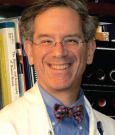Over the past decade, ASCO has launched multiple initiatives on cancer genetics that complement the rapid progress in the field. These initiatives have resulted in educational offerings and policy recommendations that have improved both preventive and therapeutic options for patients with cancer and their families at hereditary risk. While these initiatives have brought about large improvements in the documentation of first- and second-degree family history, research shows that rates of documentation of complete family history as well as interpretation of the data remain suboptimal.
eLearning Course
To address this need, ASCO University® is introducing a new resource: ASCO University’s Cancer Genetics Program, which will focus on multiple facets of cancer genetics. This slide-based, expert-led course consists of several core sections that include a general overview of the science, as well as topics such as recognition of hereditary cancer syndromes, quantitative risk assessment, establishing a cancer risk assessment service and special counseling, as well as ethical, legal, and social issues in cancer genetics. The course also contains site-specific sections that focus on general risk assessment, genetic epidemiology, and available means of medical and surgical detection and prevention within different disease sites.
“The introduction of next-generation sequencing is redefining the role of genetic testing in clinical practice,” said Noralane M. Lindor, MD, who led the program’s planning group with Kenneth Offit, MD, MPH. Dr. Lindor described how before next-generation sequencing, genetic testing was constrained by high costs that limited its availability to highly trained genetic experts. Next-generation sequencing has dramatically reduced the cost of testing, opening the door to more mainstream use by a more diverse range of physicians, many of whom are relatively new to working with this type of technology.
“The ASCO University program arose from identification of the need to provide in-depth yet concise education in genetic risk assessment and counseling to ensure that oncologists can competently integrate the power of the new genetics into their practices,” said Dr. Lindor.
This timely, sizable program will be delivered as a new eLearning course on ASCO University, where professionals can easily access one comprehensive collection on this topic. The Cancer Genetics Program was launched on ASCO University at this year’s ASCO Annual Meeting and may be taken for continuing medical education (CME)/continuing education (CE) credit. ■
For more information, visit university.asco.org/geneticsprogram. Originally printed in ASCO Connection. © American Society of Clinical Oncology. “ASCO University’s New Cancer Genetics Program.” ASCO Connection, May 2014: p 50. All rights reserved.


